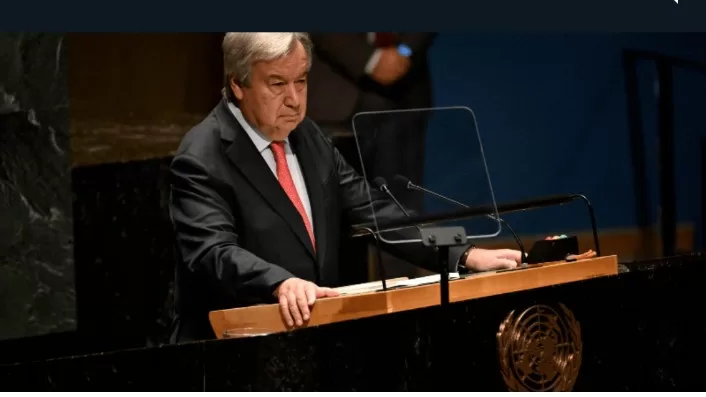UN Secretary-General Antonio Guterres is poised to host a pivotal climate conclave this Wednesday, a gathering marred at the outset by the conspicuous absence of representatives from the world’s two largest carbon emitters, China and the United States.
Despite the surge in extreme weather events and the shattering of global temperature records, greenhouse gas emissions continue their remorseless ascent, bolstering the coffers of fossil fuel conglomerates.
Guterres has positioned the “Climate Ambition Summit” as a resolute, no-frills forum where global leaders and cabinet ministers will articulate precise measures to actualize their commitments pursuant to the Paris Agreement.
The bar for securing a speaking platform has been set loftily, with the UN’s chief underscoring that only leaders equipped with concrete strategies for attaining net-zero greenhouse emissions would be accorded the privilege of addressing the assembly.
Following the review of more than a hundred applications, the UN unveiled a roster on Tuesday night comprising 41 speakers, notable for its glaring omission of China, the United States, the United Kingdom, Japan, and India.
“Tomorrow, I will extend my welcome to credible pioneers and actors at our Climate Ambition Summit,” remarked Guterres on Tuesday.
Noteworthy leaders, including President Xi Jinping of China and Prime Minister Rishi Sunak of the United Kingdom, deemed the summit inconsequential, with Sunak citing a pressing schedule as his excuse.
US President Joe Biden, though he addressed the General Assembly on Tuesday, dispatched his climate envoy John Kerry to the gathering, albeit without a speaking slot.
Alden Meyer of the climate think tank E3G pointed to an array of factors, including the Ukraine conflict, US-China tensions, and mounting economic uncertainties, as contributing to the notable absences. However, he also underscored the formidable opposition within these countries, emanating from the fossil fuel industry and other influential quarters resistant to the transformative changes demanded by the climate crisis.
Catherine Abreu, the executive director of the nonprofit Destination Zero, viewed the lack of a speaking slot for President Biden as potentially positive, given that the United States continues to expand fossil fuel initiatives despite substantial investments in renewable energy.
“While the United States won’t be taking the podium, California will be represented by Governor Gavin Newsom, and London Mayor Sadiq Khan will also attend from Britain.”
Growing ire is palpable among climate activists, especially the younger generation, who recently turned out en masse for the “March to End Fossil Fuels” in New York.
Observers are now eager to discern the stances of Canadian Prime Minister Justin Trudeau and European Union President Ursula von der Leyen, both in terms of their individual climate targets and commitments to financing developing nations.
The failure of advanced economies, responsible for the lion’s share of historical emissions, to honor their pledges to the most vulnerable low-income nations has long been a contentious issue in climate negotiations.
There are some rays of hope, including the announcement that Colombia and Panama are joining the Powering Past Coal Alliance. This development is particularly significant as Colombia ranks as the world’s sixth-largest coal exporter.
Wednesday’s summit takes place weeks ahead of the COP28 climate conference in the United Arab Emirates, where objectives encompass tripling renewable energy capacity by 2030 and phasing out unmitigated fossil fuel energy generation by 2050 through carbon capture technology.
By AFP




